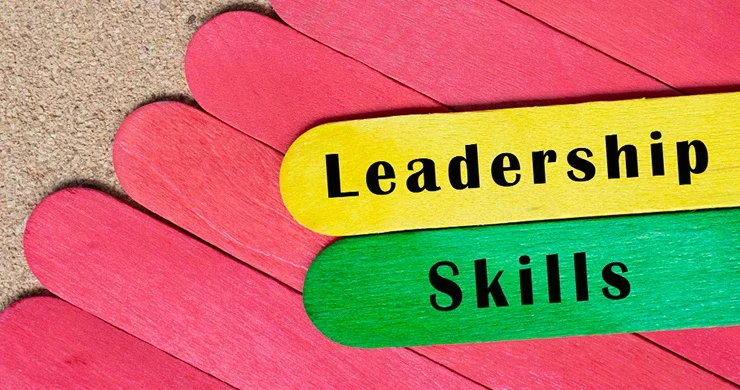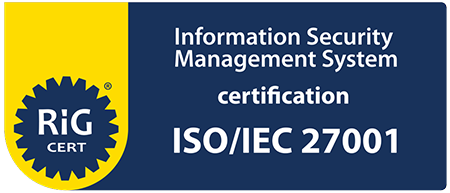Leadership has evolved far beyond giving orders or setting targets. Today’s workplace demands leaders who can guide, inspire, and build trust. Yet, while most professionals understand the importance of leadership and personal development, few truly practice them consistently.
Focusing on the results only, leaders choose to overlook the human side of work. Good leaders understand that the pillars of success in the long term are the leadership skills that they carry with them, communication and empathy, as well as teamwork essentials. These competencies make leaders likable to other people, therefore being respected, trusted, and followed.
What Are Leadership Skills?
Leadership skills are the abilities that enable a person to guide others effectively. They include communication, problem-solving, decision-making, and emotional intelligence. Together, these help leaders motivate their teams and create a clear, shared vision.
Leadership isn’t about power—it’s about influence. Strong leaders don’t just assign tasks; they inspire people to give their best. They model integrity, accountability, and confidence. True leadership is a balance between management competence and human connection—a mix of heart and mind.
Essential Leadership Skills in 2025
As workplaces become more dynamic and global, certain leadership skills are more valuable than ever. Leaders who cultivate them can accelerate their growth and impact.
1. Communication
Effective communication is the foundation of leadership. It means expressing goals clearly, listening to feedback, and ensuring every team member feels heard. Poor communication creates confusion, errors, and stress—while strong communication fosters trust and alignment across teams.
2. Emotional Intelligence
Emotional intelligence involves being aware of your own emotions and the emotions of others as well. This capability enables a leader to minimize conflict, reduce stress, and establish a good work culture.
It is a key component of leadership that makes people feel valued. Employees are more likely to trust leaders who show empathy.
3. Problem Solving
Challenges happen in every workplace. A strong leader does not panic. They think clearly and guide the team toward solutions. This shows practical leadership skills that inspire confidence.
Problem-solving boosts productivity and strengthens trust, as employees see their leaders think clearly even in uncertainty.
4. Decision Making
Leaders make decisions every day—some small, some transformational. Effective decision-making blends logic with emotional awareness. Good leaders consider both data and people before choosing the best course of action, and they stand by their decisions even when outcomes aren’t perfect.
5. Team Building
Leadership is not only about managing tasks but also about developing people. Great leaders create teams built on trust and respect. They celebrate wins together, resolve conflicts quickly, and support one another when challenges arise.
Leaders who invest in essential leadership skills like communication, emotional intelligence, and teamwork will continue to stand out.
Areas Leaders Often Overlook
Many leaders ask, “What should I focus on to grow as a leader?” The truth is, leadership growth often lies in small, daily actions, not grand strategies.
Overlooked areas include:
- Listening fully without interrupting
- Offering feedback that’s clear and kind
- Managing stress without anger
- Staying curious about new tools and technologies
These small habits build credibility and emotional balance. Ignoring them often leads to frustration or loss of trust. Another key skill often missed is adaptability. The business world changes quickly, and leaders who can’t adjust risk falling behind. Adaptable, forward-thinking leaders are now in high demand across all industries.
Leadership Skills and Career Growth (2020-2025)
The following timeline shows the evolution of average leader earnings and their corresponding skill focus from 2020 to 2025.
2020
$70,000
Focus on control, minimal teamwork
2021
$75,000
More communication, still top-down
2022
$82,000
Growth of empathy and respect
2023
$88,000
Expansion of global leadership skills
2024
$95,000
More mentoring, coaching, stress control
2025
$105,000
Balance of leadership and development skills
This progression shows a clear pattern: leaders who invest in developing their leadership and management skills not only gain respect but also increase their earning potential.
How to Develop Leadership Skills in Employees

Developing leadership within your team starts with practice and empowerment, not just theory.
Steps to help employees grow:
- Let them lead small tasks and projects
- Teach them components of leadership skills, like planning and problem-solving
- Be able to provide mentorship, counseling, and guidance
- Give them the freedom to make errors and to learn
Through hands-on experience, employees gain confidence and begin to demonstrate leadership naturally in daily work.
How to Demonstrate Leadership Skills
A big title is not necessary to be a leader. Many wonder, “How do I demonstrate leadership skills?” The answer is through daily actions such as:
- Support team members when they struggle
- Share credit for success with everyone
- Take responsibility when things go wrong
- Stay calm in pressure situations
- Guiding new employees with patience
These simple acts define real leadership - consistent, humble, and authentic.
Growth Areas for Leaders
Even the most experienced leaders have room to grow. Consider focusing on:
Enhancing public speaking and storytelling skills Building strategic thinking and vision Learning coaching techniques to empower others Expanding global leadership awareness Balancing leadership and management in daily decisions
Final Thoughts
Leadership in the future does not involve power. It is about development, trust and balance. Leaders who invest in essential leadership skills like communication, emotional intelligence, and teamwork will continue to stand out.
In order to retain their local leaders, companies require versatile, motivating, and mentoring leaders. These are the competencies that can’t be ignored in 2025 and beyond.
To accelerate your leadership journey, explore trusted tools and resources at Leadership Support (LS-S.com), designed to help leaders strengthen their capabilities and lead with confidence.
FAQs
What leadership roles can I take without being a manager?
Lead projects, mentor junior colleagues, or help solve team challenges.
How do I demonstrate leadership every day?
Be responsible, take initiative, and support your team members.
What are the key components of leadership skills
Communication, decision making, empathy, problem solving and teamwork.
How can I improve leadership at work?
Listen carefully, share feedback, and guide people with patience.
Listen carefully, share feedback, and guide people with patience.
They help leaders adapt to change, inspire teams, and increase their value to organizations.




